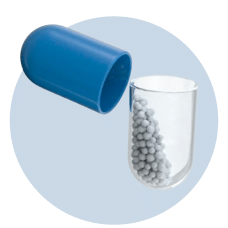R Top O 4mg/20mg Tablet
Product introduction
R Top O 4mg/20mg Tablet can be taken with or without food. How much you need, and how often you take it, will depend on what you are being treated for. Follow the advice of your doctor. You should keep taking it regularly to prevent problems from happening in the future. You may be able to help improve your symptoms by eating smaller meals more often and avoiding spicy or fatty foods.
Most people who take it do not have any side effects, but the most common include headache, constipation and diarrhea. If you do get a side effect, it is usually mild and will go away when you stop taking this medicine or as you adjust to it. Consult your doctor if any of these side effects bother you or do not go away.
Before taking it, you should tell your doctor if you have any kidney or liver problems. This may affect the dose or suitability of this medicine. Also, tell your doctor what other medicines you are taking as some may affect, or be affected by, this medicine. Avoid drinking alcohol as this can increase the amount of acid in your stomach and make your symptoms worse. If you are pregnant or breastfeeding, ask advice from your doctor.
Uses of R Top O Tablet
- Vomiting
- Nausea
- Gastroesophageal reflux disease (Acid reflux)
- Peptic ulcer disease
Benefits of R Top O Tablet
In Nausea
In Gastroesophageal reflux disease (Acid reflux)
Some simple lifestyle changes can help reduce the symptoms of GERD. Think about what foods trigger heartburn and try to avoid them; eat smaller, more frequent meals; try to lose weight if you are overweight and try to find ways to relax. Do not eat within 3-4 hours of going to bed.
In Peptic ulcer disease
Side effects of R Top O Tablet
Common side effects of R Top O
- Headache
- Constipation
- Fatigue
- Diarrhea
- Nausea
- Vomiting
- Pain
- Sore throat
- Infection
- Abdominal pain
How to use R Top O Tablet
How R Top O Tablet works
Safety advice
All substitutes
Quick tips
- R Top O 4mg/20mg Tablet is used to give relief from nausea, vomiting as well as acidity, heartburn and other discomfort associated with acid reflux and peptic ulcer disease.
- It is advisable to take your doses about half an hour before meals.
- If you vomit within one hour of taking a dose, take another dose.
- Avoid taking soft drinks, citrus fruits like orange and lemon, which can irritate the stomach and increase acid secretion.
- Incorporate the following lifestyle changes in order to prevent acidity:
- Make sure you eat regular meals and drink plenty of water.
- Avoid spicy and fatty fried food.
- Lose weight if you are obese.
- If you are a smoker, consider giving up.
- Don't drink too much alcohol.
- Do not go to bed immediately after taking a meal. Sit in a relaxed position for sometimes for better digestion.
Fact Box
Patient concerns
Disclaimer:
Tata 1mg's sole intention is to ensure that its consumers get information that is expert-reviewed, accurate and trustworthy. However, the information contained herein should NOT be used as a substitute for the advice of a qualified physician. The information provided here is for informational purposes only. This may not cover everything about particular health conditions, lab tests, medicines, all possible side effects, drug interactions, warnings, alerts, etc. Please consult your doctor and discuss all your queries related to any disease or medicine. We intend to support, not replace, the doctor-patient relationship.References
- Sharkey KA, MacNaughton WK. Gastrointestinal Motility and Water Flux, Emesis, and Biliary and Pancreatic Disease. In: Brunton LL, Hilal-Dandan R, Knollmann BC (Editors). Goodman & Gilman’s: The Pharmacological Basis of Therapeutics. 13th ed. New York, NY: McGraw-Hill Education; 2018. pp. 922-944.
- Hoogerwerf WA, Pasricha PJ. Pharmacotherapy of Gastric Acidity, Peptic Ulcers, and Gastroesophageal Reflux Disease. In: Brunton LL, Chabner BA, Knollmann BC, editors. Goodman & Gilman’s: The Pharmacological Basis of Therapeutics. New York, New York: McGraw-Hill Medical; 2011. pp. 967-981.
- McQuaid KR. Drugs Used in the Treatment of Gastrointestinal Diseases. In: Katzung BG, Masters SB, Trevor AJ (Editors). Basic and Clinical Pharmacology. 11th ed. New Delhi, India: Tata McGraw Hill Education Private Limited; 2009. pp. 1067-1101.
Marketer details
The list of available options shown with the same composition has been prepared upon the advice of registered medical practitioners, pharmacists affiliated with TATA 1MG. TATA 1MG does not promote any pharmaceutical product of any particular company, and all recommendations are based on the medical opinion, advisories from specialist medical and pharmaceutical professionals.
Lab tests offered by us









